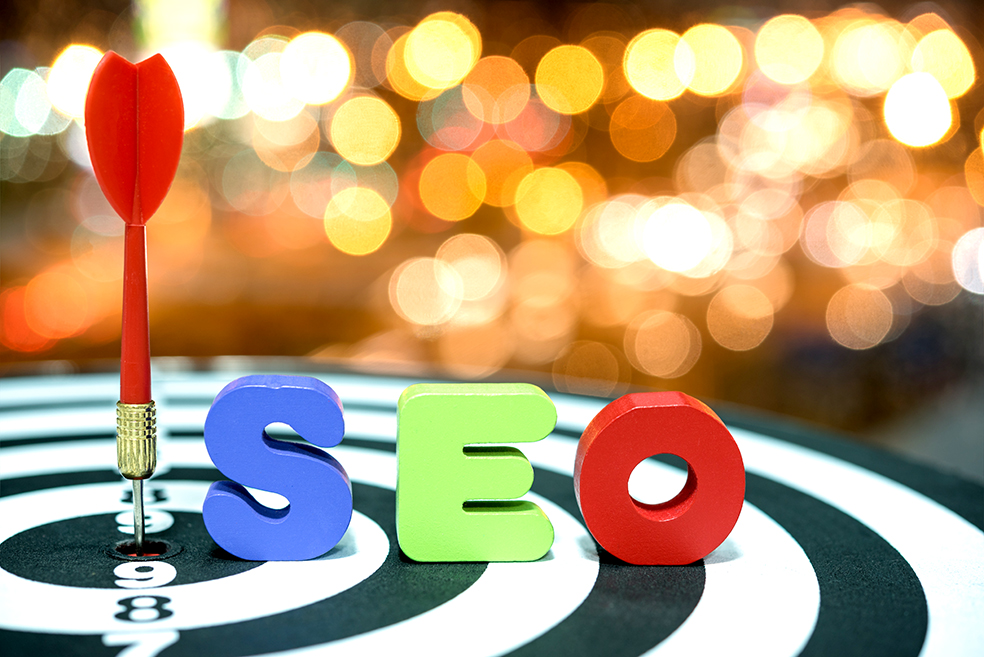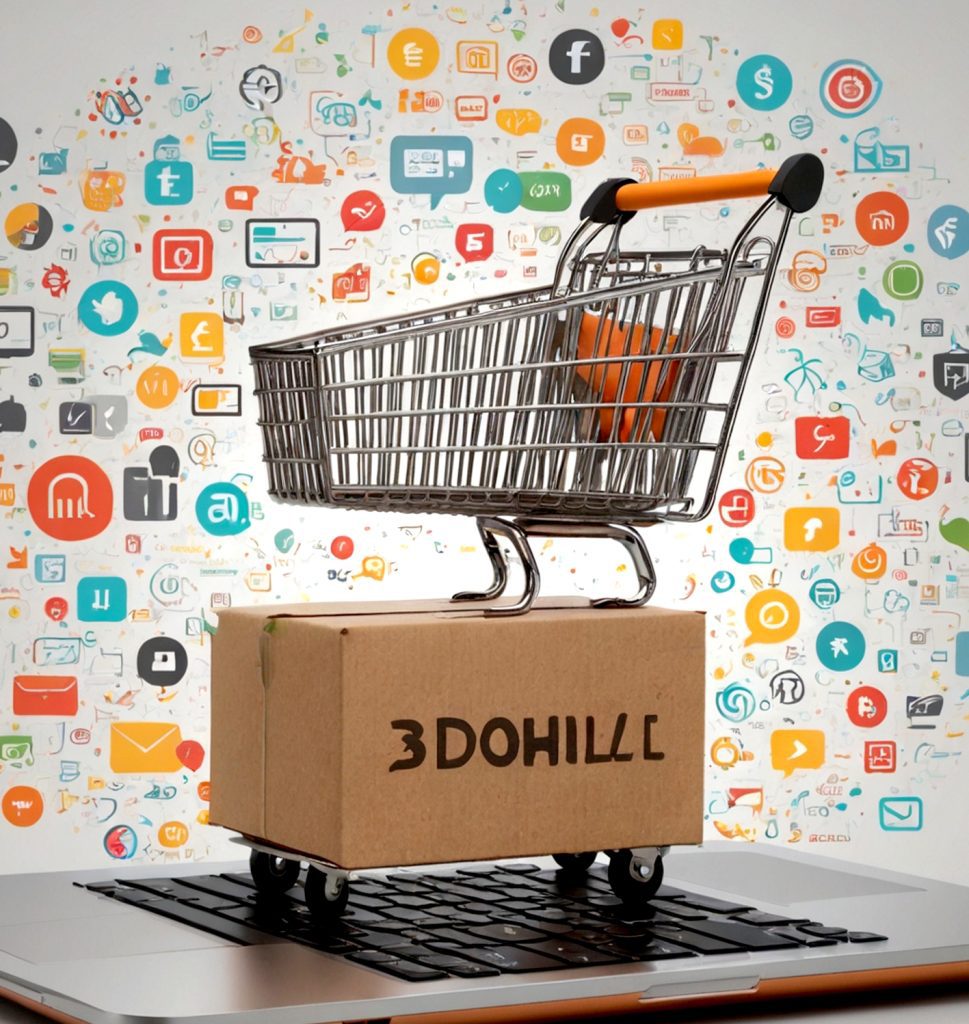The e-commerce industry is booming. In 2023, global e-commerce sales are expected to reach \$5.5 trillion. This presents a huge opportunity for businesses of all sizes to sell their products and services online.
Thank you for reading this post, don't forget to subscribe!Thank you for reading this post, don't forget to subscribe!However, simply having an online store is not enough to guarantee success. You need to be able to attract customers to your website and convince them to buy from you. This is where digital marketing comes in.
What is Digital Marketing?
Digital marketing is the use of digital channels to promote or market products or services to consumers and businesses. It includes a wide range of activities, such as:
- Search engine optimization (SEO): This involves optimizing your website so that it ranks higher in search engine results pages (SERPs).
- Pay-per-click (PPC) advertising: This involves creating ads that appear at the top of SERPs or on other websites.
- Social media marketing: This involves using social media platforms, such as Facebook, Twitter, and Instagram, to connect with potential customers.
- Content marketing: This involves creating and sharing valuable content, such as blog posts, infographics, and videos, to attract and engage potential customers.
- Email marketing: This involves sending promotional emails to subscribers.
- Affiliate marketing: This involves partnering with other businesses to promote their products or services in exchange for a commission on sales.
- Influencer marketing: This involves partnering with influencers to promote your products or services to their followers.
- Public relations (PR): This involves building relationships with the media to generate positive publicity for your business.

Why is Digital Marketing Important for E-commerce?
Digital marketing is essential for e-commerce businesses because it allows you to:
- Reach a wider audience: With digital marketing, you can reach potential customers all over the world.
- Target your marketing: You can target your marketing to specific demographics, interests, and even purchase behaviors.
- Track your results: You can track the results of your marketing campaigns so that you can see what’s working and what’s not.
- Get more bang for your buck: Digital marketing is often more cost-effective than traditional marketing methods.
How to Create an Effective E-commerce Marketing Strategy
Creating an effective e-commerce marketing strategy involves:
- Defining your goals: What do you want to achieve with your marketing? Do you want to increase brand awareness, generate leads, or drive sales?
- Identifying your target audience: Who are you trying to reach with your marketing? What are their needs and wants?
- Choosing the right marketing channels: Which channels will be most effective for reaching your target audience?
- Creating high-quality content: Your content should be informative, engaging, and relevant to your target audience.
- Tracking your results: It’s important to track the results of your marketing campaigns so that you can see what’s working and what’s not.
SEO for E-commerce
SEO is one of the most important aspects of digital marketing for e-commerce businesses. By optimizing your website for search engines, you can improve your chances of ranking higher in SERPs, which will lead to more traffic to your website.
There are a number of things you can do to improve your website’s SEO, including:
- Optimizing your website’s title tags and meta descriptions
- Using relevant keywords throughout your website
- Creating high-quality content
- Building backlinks to your website

PPC Advertising for E-commerce
PPC advertising is another effective way to promote your e-commerce business. With PPC advertising, you create ads that appear at the top of SERPs or on other websites. You only pay when someone clicks on your ad, which makes PPC advertising a cost-effective way to reach potential customers.
Social Media Marketing for E-commerce
Social media is a great way to connect with potential customers and promote your e-commerce business. By creating and sharing engaging content on social media, you can attract new followers and drive traffic to your website.

Content Marketing for E-commerce
Content marketing is a great way to attract and engage potential customers. By creating and sharing valuable content, such as blog posts, infographics, and videos, you can establish yourself as an expert in your industry and build trust with potential customers.
Email Marketing for E-commerce
Email marketing is a great way to stay in touch with customers and promote your e-commerce business. By sending regular emails to your subscribers, you can keep them informed about your latest products and services, and encourage them to make repeat purchases.
Affiliate Marketing for E-commerce
Affiliate marketing can be a powerful tool for e-commerce businesses. By partnering with other businesses that have a relevant audience, you can tap into their customer base and drive sales to your online store.
Here are some of the benefits of affiliate marketing for e-commerce businesses:
- Reach a wider audience: Affiliate marketing allows you to reach potential customers that you wouldn’t be able to reach on your own.
- Cost-effective: You only pay affiliates when they generate a sale, which makes affiliate marketing a cost-effective way to promote your business.
- Improved brand awareness: Affiliate marketing can help to increase brand awareness for your e-commerce business.
Here are some things to keep in mind when implementing an affiliate marketing program for your e-commerce business:
- Choose the right affiliates: Partner with affiliates that have a relevant audience and a good reputation.
- Develop a competitive commission structure: Offer affiliates a commission rate that is competitive with other e-commerce businesses.
- Provide your affiliates with marketing materials: Make it easy for your affiliates to promote your products or services by providing them with marketing materials, such as product descriptions, banners, and coupon codes.
- Track your results: Track the results of your affiliate marketing program so that you can see what’s working and what’s not.
Influencer Marketing for E-commerce
Influencer marketing is another great way to promote your e-commerce business. Influencers are people who have a large following on social media or other online platforms. By partnering with influencers, you can tap into their audience and promote your products or services.
Here are some of the benefits of influencer marketing for e-commerce businesses:
- Reach a targeted audience: Influencer marketing allows you to reach a targeted audience that is already interested in products or services like yours.
- Increased brand awareness: Influencer marketing can help to increase brand awareness for your e-commerce business.
- Build trust: Consumers are more likely to trust recommendations from influencers than traditional advertising.
Here are some things to keep in mind when implementing an influencer marketing program for your e-commerce business:
- Choose the right influencers: Partner with influencers who have a relevant audience and a good reputation.
- Develop a clear campaign brief: Be clear about your goals and objectives for the influencer marketing campaign.
- Provide influencers with creative freedom: Give influencers the creative freedom to develop content that resonates with their audience.
- Track your results: Track the results of your influencer marketing campaign so that you can see what’s working and what’s not.
Public Relations (PR) for E-commerce
Public relations (PR) can be a valuable tool for e-commerce businesses. By building relationships with the media, you can generate positive publicity for your business.
Here are some of the benefits of PR for e-commerce businesses:
- Increased brand awareness: PR can help to increase brand awareness for your e-commerce business.
- Improved brand reputation: Positive media coverage can help to improve the reputation of your e-commerce business.
- Build trust: Consumers are more likely to trust businesses that have been featured in the media.
Here are some things to keep in mind when implementing a PR strategy for your e-commerce business:
- Develop a newsworthy story: Develop a newsworthy story that will be of interest to the media.
- Build relationships with journalists: Build relationships with journalists who cover your industry.
- Pitch your story to the media: Pitch your story to the media in a clear and concise way.
Conversion Rate Optimization (CRO) for E-commerce
Conversion rate optimization (CRO) is the process of optimizing your website to increase the number of visitors who convert into customers.
Here are some of the benefits of CRO for e-commerce businesses:
- Increased sales: CRO can help to increase sales for your e-commerce business.
- Improved profitability: CRO can help to improve the profitability of your e-commerce business.
- Reduced customer acquisition costs: CRO can help to reduce your customer acquisition costs.
Here are some things you can do to improve the conversion rate of your e-commerce website:
- Make it easy for visitors to find what they’re looking for: Your website should be well-organized and easy to navigate.
- Use high-quality product images and videos: High-quality product images and videos will help to increase sales.
- Write clear and concise product descriptions: Your product descriptions should be clear, concise, and informative.
- Offer a variety of payment options: Make it easy for customers to pay for their purchases by offering a variety of payment options.
- Provide excellent customer service: Excellent customer service can help to improve the conversion rate of your website.
Data-Driven Marketing for E-commerce Success
In today’s digital world, data is king. By leveraging data analytics, you can gain valuable insights into your customers’ behavior and preferences, which can be used to improve your marketing campaigns and boost your bottom line.
Here are some key benefits of data-driven marketing for e-commerce businesses:
- Personalized marketing: You can use data to personalize your marketing messages to individual customers. This can lead to higher conversion rates and increased customer satisfaction.
- Targeted advertising: You can use data to target your advertising campaigns to the most likely customers. This can help you to get the most out of your advertising budget.
- Improved customer segmentation: You can use data to segment your customers into different groups based on their demographics, interests, and purchase behavior. This can help you to develop more targeted marketing campaigns.
- Identify marketing trends: You can use data to identify marketing trends that you can leverage to improve your marketing efforts.
- Measure the success of your marketing campaigns: You can use data to track the results of your marketing campaigns and see what’s working and what’s not.
Here are some of the data sources that you can use to improve your e-commerce marketing:
- Website analytics: Website analytics tools, such as Google Analytics, can provide you with valuable insights into how visitors are interacting with your website. This data can be used to improve your website’s user experience and conversion rate.
- Customer relationship management (CRM) software: CRM software can help you to track your interactions with customers and gain insights into their purchase behavior. This data can be used to personalize your marketing messages and improve customer service.
- Social media analytics: Social media analytics tools can provide you with insights into how your audience is engaging with your brand on social media. This data can be used to improve your social media marketing strategy.
- Email marketing analytics: Email marketing analytics tools can help you to track the results of your email marketing campaigns. This data can be used to improve your email marketing strategy and increase your open rates and click-through rates.

Marketing Automation for E-commerce
Marketing automation is the process of using software to automate repetitive marketing tasks. It can save you time and money, and it can also help you to improve the efficiency and effectiveness of your marketing campaigns.
Here are some of the benefits of marketing automation for e-commerce businesses:
- Increased efficiency: Marketing automation can help you to automate repetitive marketing tasks, such as sending emails and scheduling social media posts. This can free up your time to focus on other important tasks.
- Improved personalization: Marketing automation can help you to personalize your marketing messages to individual customers. This can lead to higher conversion rates and increased customer satisfaction.
- Increased ROI: Marketing automation can help you to improve the ROI of your marketing campaigns by automating tasks and improving efficiency.
Here are some examples of marketing automation tools that can be used by e-commerce businesses:
- Email marketing automation software: This type of software can be used to automate the sending of emails, such as welcome emails, abandoned cart emails, and promotional emails.
- Social media scheduling tools: This type of software can be used to schedule social media posts in advance.
- Marketing attribution software: This type of software can help you to track the results of your marketing campaigns and see which channels are driving the most sales.
Conclusion
Digital marketing is essential for e-commerce businesses in today’s competitive market. By creating an effective e-commerce marketing strategy that incorporates SEO, PPC advertising, social media marketing, content marketing, email marketing, affiliate marketing, influencer marketing, PR, CRO, data-driven marketing, and marketing automation, you can reach a wider audience, target your marketing, track your results, and get more bang for your buck.
If you’re looking for help creating or implementing an e-commerce marketing strategy, contact Zimex Apex today. We are a leading digital marketing agency with a proven track record of success. We can help you achieve your online marketing goals and take your e-commerce business to the next level.



